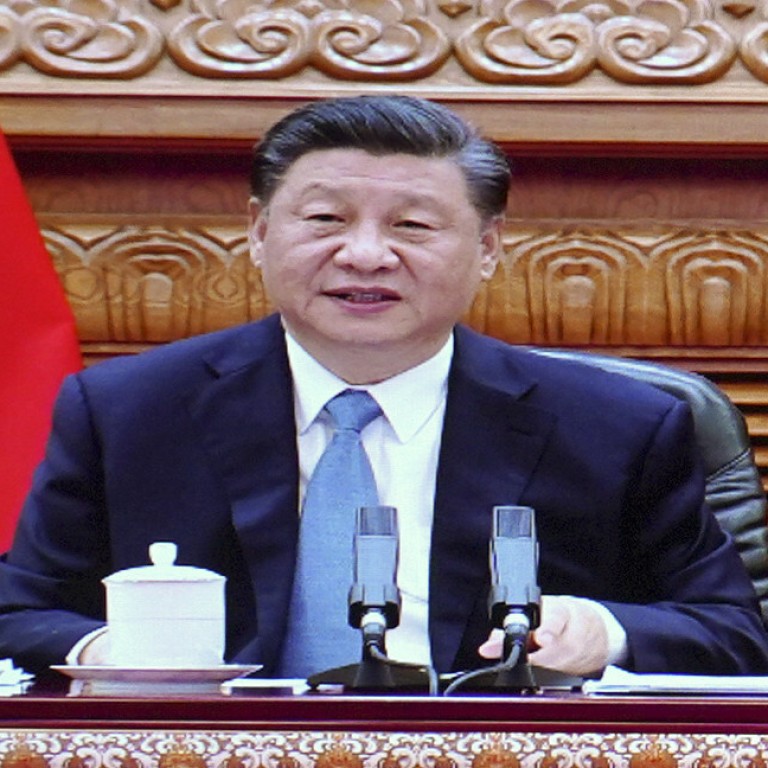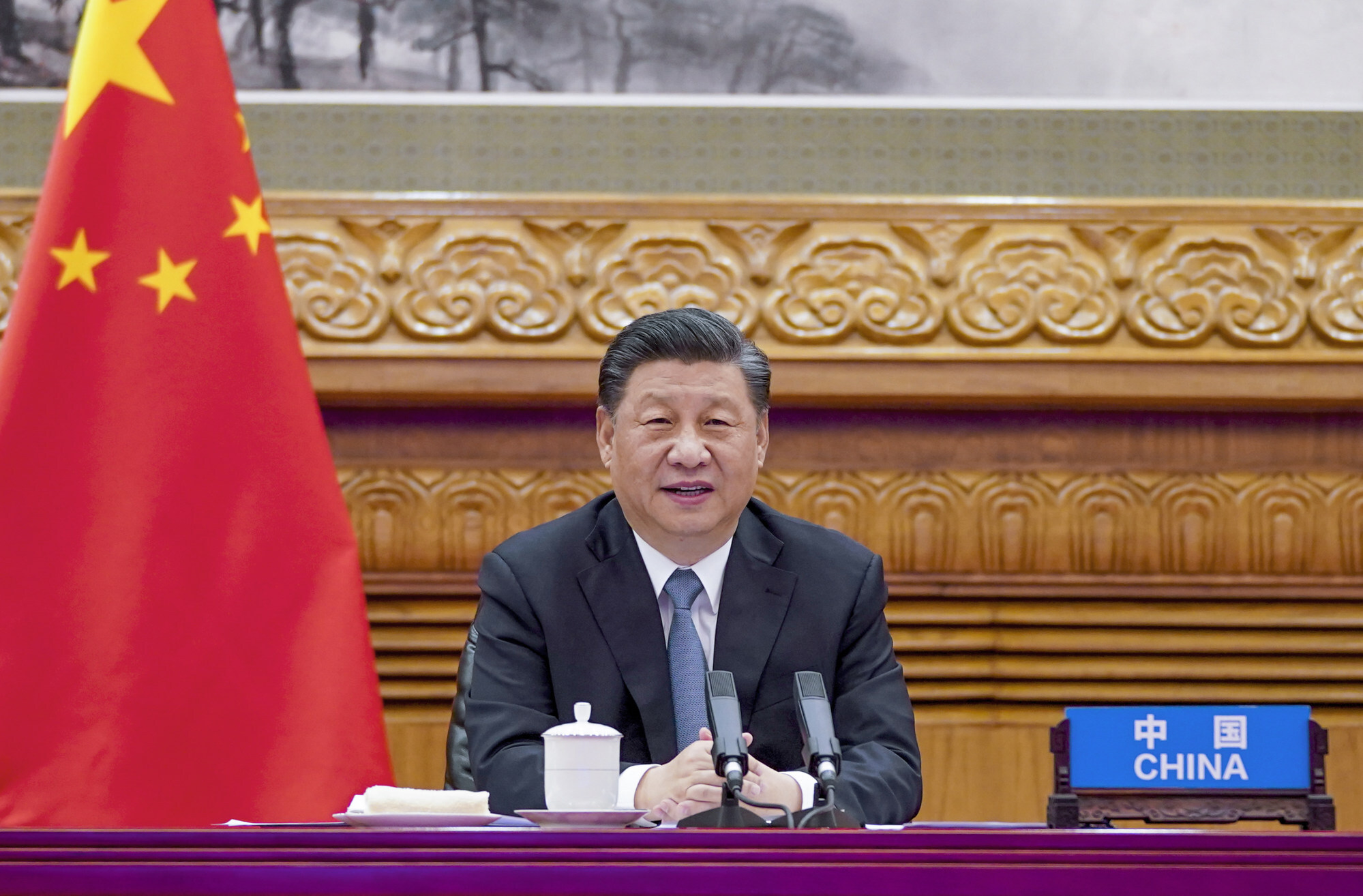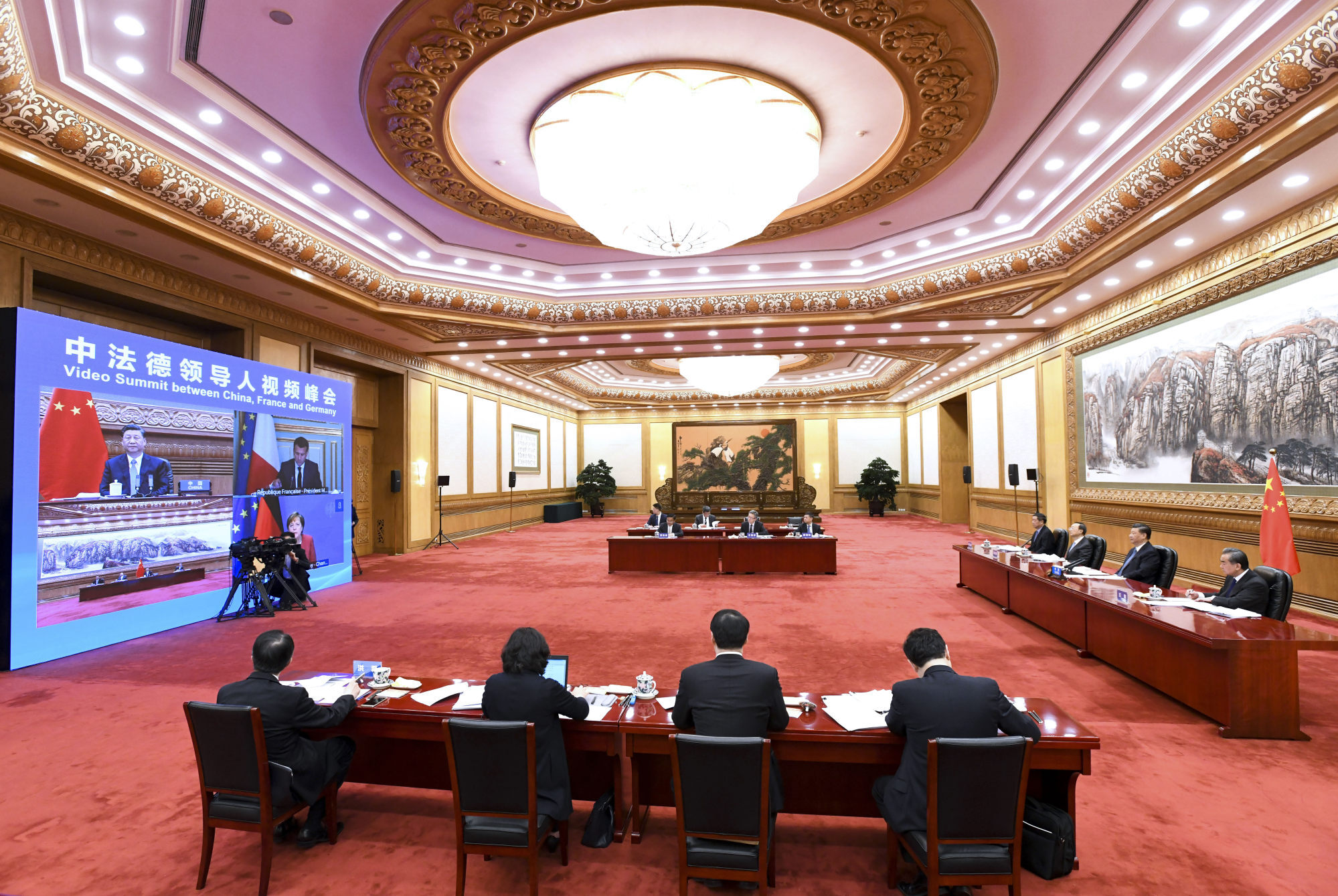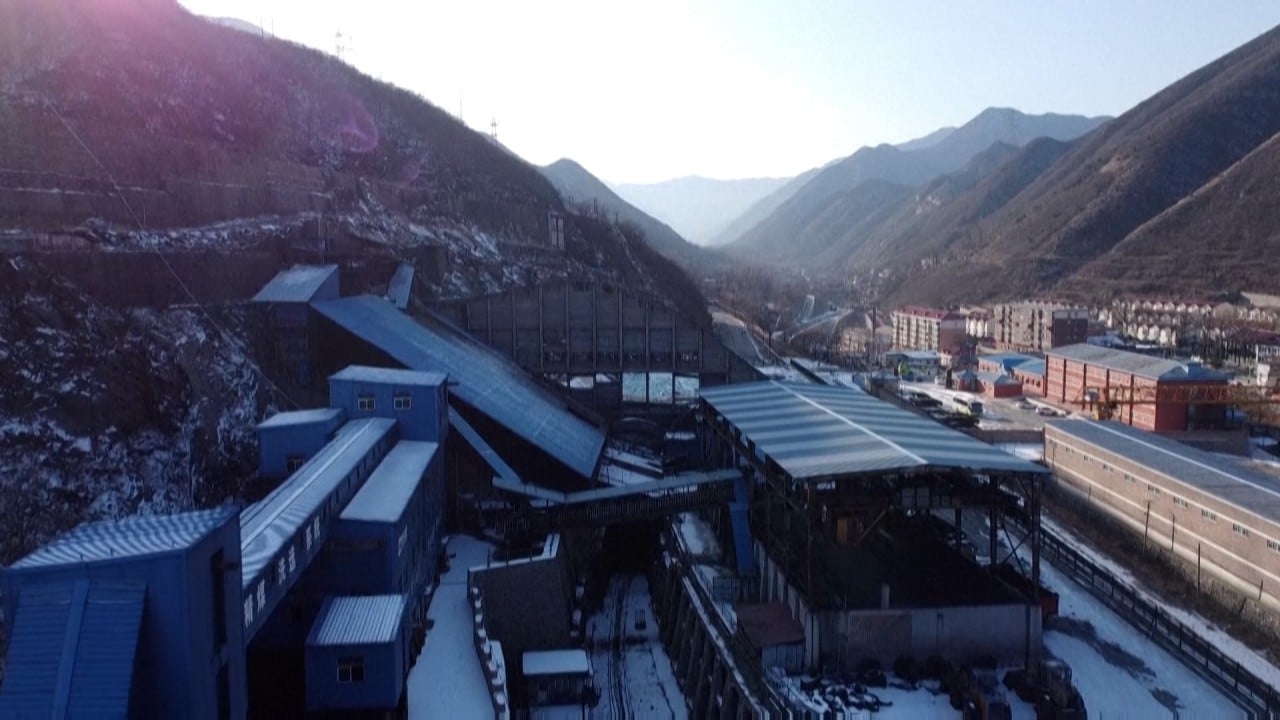
China will keep its word on climate agreements, Xi tells Merkel and Macron
- Chinese president says it will be a tough battle but Beijing is committed to building ‘green and low-carbon economy’
- He also takes veiled swipe at US, saying climate change should not be used ‘as an excuse to attack other countries’
“We have included [those targets of 2030 and 2060, respectively] … in our overall plan for environmental development and we will push ahead in a comprehensive way the development of a green and low-carbon economy.”
He also said Beijing had decided to accept the Kigali Amendment to the Montreal Protocol and strengthen control on non-CO2 greenhouse gases such as HFCs, or hydrofluorocarbons, used in refrigeration, air conditioning and fire protection.
The amendment took effect in 2019 and has been ratified by 93 countries and the European Union and seeks over 80 per cent reduction in HFCs consumption by 2047.

“Combating climate change is a shared enterprise for all mankind and it should not be used [by countries] as a bargaining chip for geopolitical purposes, to target or as an excuse to attack other countries or put up trade barriers,” Xi said.
He added that China would support developing countries to tackle climate change.
Xi also called for the China-EU investment pact – agreed to in December after seven years of negotiations – to be ratified soon.
It made no mention of issues like the tit-for-tat sanctions announced by China and the EU just two weeks ago or human rights and geopolitical issues like Xinjiang and Hong Kong.
It also came as the EU and US are reportedly pressuring China to make its climate targets more aggressive, bringing the date for peak emissions forward from 2030 to 2025.
While China has yet to officially confirm that Xi will join the Earth Day summit, Le Yucheng, vice-minister of foreign affairs, told Associated Press on Friday that Beijing planned to send a “positive message” at the meeting, which will be attended by 40 world leaders.
Beijing skies turn yellow under cloud of sand, dust
But Le signalled that China was unlikely to make any new proposal beyond its current commitments on climate change.
“For a big country with 1.4 billion people, these goals are not easily delivered,” he said. “Some countries are asking China to do more on climate change. I am afraid this is not very realistic.”
Speaking ahead of the meeting, Simone Tagliapietra, a climate specialist at the Brussels-based think tank Bruegel, said Macron and Merkel would have been looking for concrete proposals from Xi on how China would hit its targets.
“There will certainly be a proposition to include China in a discussion concerning carbon border adjustment, which is an item that China is very aware of,” Tagliapietra said, referring to the EU’s plan to impose a charge on imports to the bloc of certain raw materials “from less climate-ambitious countries”.
Ma Jun, director of the Beijing-based Institute of Public and Environmental Affairs, said China and the EU shared common ground on climate change.
“They could work together when the United States withdrew from the Paris Agreement and prevented major setbacks in global climate governance,” he said.
But he said they also disagreed. For instance, Brussels is pushing Beijing to set a more ambitious target of 2025 to bring carbon emissions to a peak.
Climate change: China, Japan and South Korea must work together to end coal use and funding
The EU also stressed the importance of China not building any new coal-fired power plants or financing them abroad at the EU-China leaders’ meeting in September.
“Coal is among the disagreements,” Ma said. “Coal is still important for China’s energy security and grid stability, but the EU doesn’t see it that way.”
Ma said that since China was a huge economy, climate targets should be set for each province and city based on their situation, and for some a goal of reaching peak emissions by 2025 could be possible. “It may be more realistic … than making a timetable for the whole country,” he said.

According to the Centre for Research on Energy and Clean Air, China brought 38 gigawatts of new coal-fired power plants online last year, or the equivalent of Germany’s entire coal-fired power capacity.
“In 2020, China built over three times as much new coal power capacity as all other countries in the world combined – the equivalent of more than one large coal plant per week,” read the organisation’s Global Energy Monitor.
“In addition, over 73GW of new coal power projects were initiated in China, five times as much as in all other countries.”
A report released this week by Bruegel said China’s latest five-year plan, released in March, “simply commits to reducing the carbon and energy intensity of China’s GDP growth”.
“It essentially outlines a continuation of existing trends, rather than an acceleration of climate action. Strongly focused on the development of the manufacturing sector (notably through strict targets on state-led innovation), the plan mentions neither a coal cap, nor an emissions cap,” read the report.



